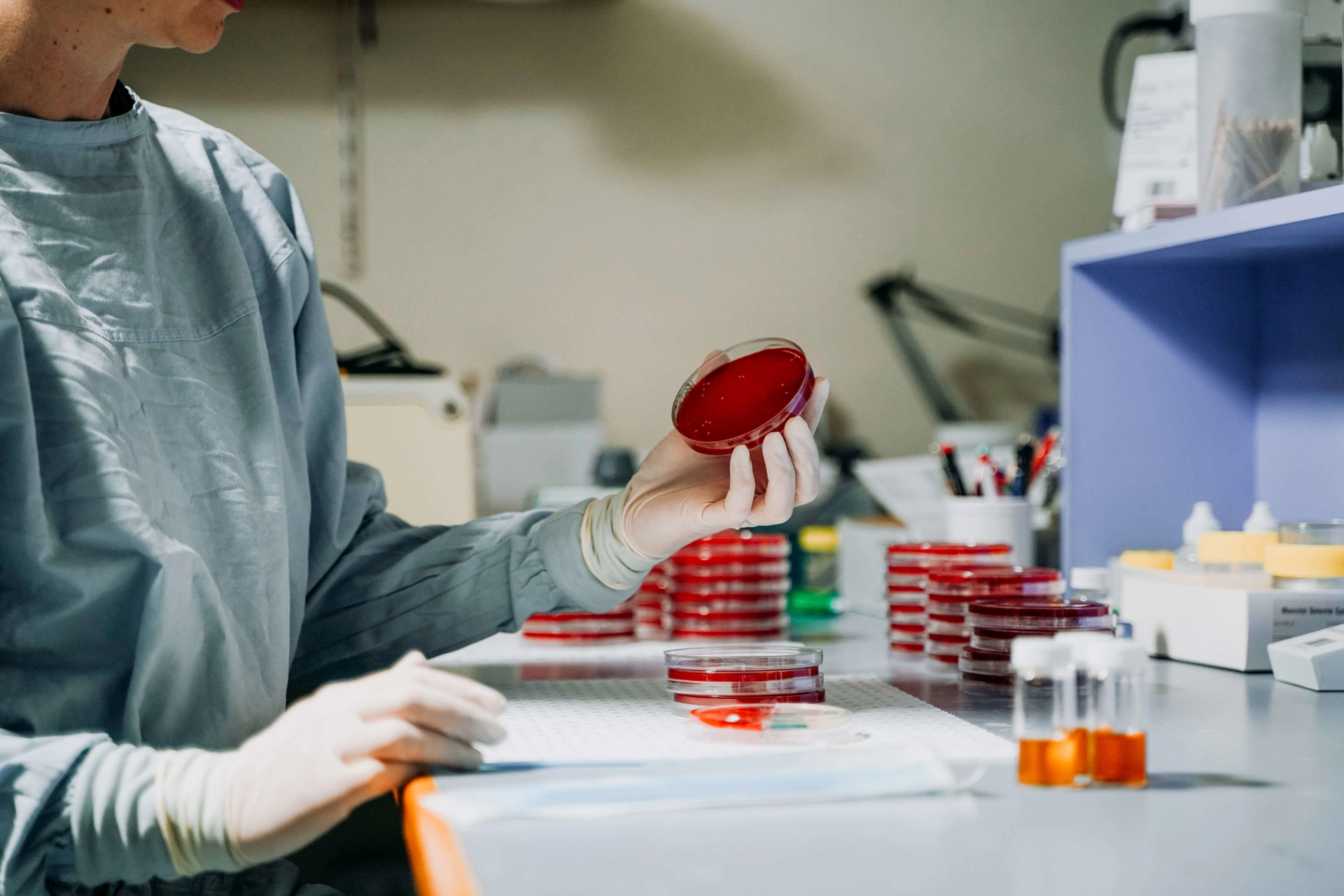Featured research projects
The Antibiotics and Vaccine Immune Responses Study (AVIRS)
Investigating whether antibiotics to deplete the gut microbiota influences immune response to the BCG vaccine
Project Status: RecruitingThe VacciMum Study
Assessing the impacts of maternal immunisation on infant innate immune responses
Project Status: In progressThe Bloom Infant Probiotic (BIP) Study
A randomised controlled trial to assess if a probiotic intervention leads to enhanced immune responses to vaccination in antibiotic-treated infants
Project Status: Commencing
Completed projects
SAHMRI partnered with SA Health and the Murdoch Children’s Research Institute (MCRI) in a clinical trial of a vaccine that could provide an immune system boost to protect against the worst of COVID-19’s symptoms.
The BCG vaccination to Reduce the impact of COVID-19 in Australian healthcare workers following Coronavirus Exposure (BRACE) Trial is a multi-centre randomised controlled clinical trial of the BCG vaccine against COVID-19.
The trial enrolled 10,000 healthcare workers from across Australia and Europe to investigate whether an existing, commonly-used vaccine can reduce the effects of COVID-19 infection.
What is BCG?
Bacillus Calmette-Guerin (BCG) is a vaccine that was developed against tuberculosis and is still given to more than 100 million babies annually for that purpose. It’s also commonly used as a treatment for people with bladder cancer.
There is epidemiological evidence that BCG vaccination could reduce susceptibility to respiratory infections such as COVID-19.
Previous studies have shown BCG reduces the level of virus when people are infected with other viruses. The vaccine also boosts people’s ‘frontline’ immunity, training it to respond to other subsequent infections with greater intensity. Researchers hope this improved ‘innate’ immunity will provide crucial time to develop and importantly, validate, a specific anti-SARS-CoV-2 vaccine.
The SAHMRI portion of this trial was led by Professor David Lynn. You can find out more about the BRACE Trial here.
Immune checkpoint inhibitors (ICIs) represent a paradigm shift in cancer treatment, however, while these therapies are remarkably efficacious in some patients, response rates are widely variable between patients and tumour types.
Combination therapies with other agents such as immune agonistic antibodies, that target coactivating immune receptors, are now being pursued to enhance responses.
There are currently 25 different agonist antibodies being tested in 48 ongoing combination trials. Yet none have been approved to date, and only one has begun phase III trials. A major obstacle to their implementation is dose-limiting toxicity and, in some patients, serious side-effects including cytokine release syndrome and liver damage.
Excitingly, our preliminary data shows that the gut microbiota plays a critical role in mediating the toxicity of the agonistic antibody, anti-CD40. Germ-free or antibiotic-treated tumour-bearing mice had significantly reduced anti-CD40 induced immunotoxicity, cytokine storm, and severe liver damage. Critically, anti-CD40 anti-tumour efficacy was not impaired. Our exciting data suggest that microbiota targeted interventions could substantially reduce the immunotoxicity associated with anti-CD40 and possibly other agonistic antibodies, overcoming a critical roadblock in their clinical application. Unfortunately, antibiotic treatment is unlikely to a feasible clinical strategy as the efficacy of ICIs (which would be given in combination), is surprisingly dependent on signals from the microbiota.
Here, we will determine the role that specific bacteria, microbial metabolites, and host signalling pathways, play, disentangling the signals from the microbiota which promote immune agonist toxicity versus those that are required for the efficacy of ICIs. New strategies which reduce the dose-limiting toxicity of these drugs would simultaneously enhance their efficacy and safety, with significant clinical and health economic impact.
Published papers
This project was led by Professor David Lynn and funded by an NHMRC Ideas grant, Tour de Cure and Flinders Foundation Seed Funding.
For reasons that are poorly understood, immune responses to vaccination are highly variable among different infants and different populations.
This research group has recently shown that in mice, disruption of the gut microbiota in early life by antibiotic exposure leads to poorer immune responses to multiple different vaccines that are given to infants worldwide. The Antibiotics and Immune Responses (AIR) study is now investigating whether this is also the case in cohort of nearly 200 infants.
Antibiotics are frequently prescribed to both mother and baby during the pre- and postnatal periods but their impact on the microbiota following birth is poorly understood.
This project recruited three cohorts of infants from the Women and Children’s Hospital. Cohort 1 was infants directly exposed to antibiotics, cohort 2 was infants born to mothers having received intrapartum antibiotics and cohort 3 were controls which have not been exposed to any antibiotics either directly or in-utero.
All infants were vaginally-born, healthy and full term. Infants born from mothers with a maternal BMI of more than 30 in the first trimester were excluded. Additionally, infants were excluded if they or their mothers have sepsis, allergy to a vaccine component, major congenital abnormality, gastrointestinal or other serious disease.
Data on possible confounders were also collected. The team used high-resolution shotgun metagenomics together with RNA-Seq and flow cytometry to profile how vaccine antibody responses are shaped in early life. Stool samples were collected for microbiota profiling at weeks 1 and 6 of life. Blood samples were collected for RNA-Seq and flow cytometry at weeks 6 (pre-vaccination) and 7 (post-vaccination). Antibody responses to infant vaccines (e.g. PCV13, Tetanus, Diphtheria, Pertussis) was assessed at 7 and 15 months.
This project was led by Professor David Lynn and funded by the National Health and Medical Research Council.

